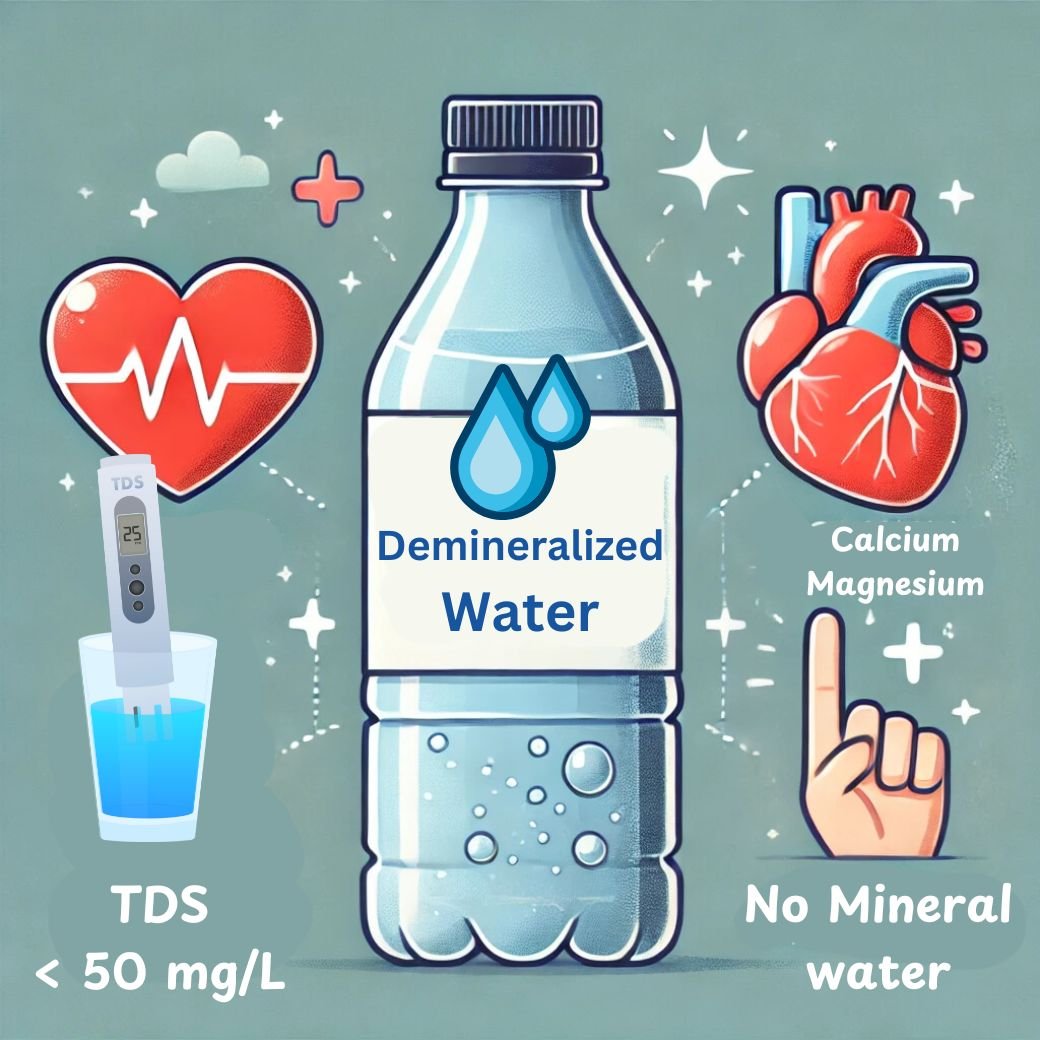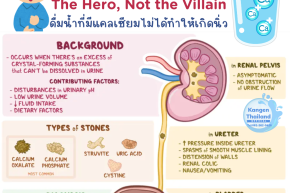Why WHO Says Not to Drink Demineralized Water for Long Periods
Last updated: 16 Aug 2024 | 842 Views |

Why WHO Says Not to Drink Demineralized Water for Long Periods
What is Demineralized Water?
Demineralized Water is water that has had its minerals removed or contains very few minerals, resulting in a Total Dissolved Solids (TDS) value of less than 50 mg/L. Examples of this type of water include Distilled Water and Reverse Osmosis (RO) Water.
What is TDS?
TDS stands for the concentration of dissolved minerals in water. Minerals such as calcium, magnesium, and potassium are essential for the body. Good drinking water should have a TDS value between 150-300 mg/L to ensure sufficient mineral intake.
Effects of Drinking Demineralized Water for Extended Periods
Drinking water without minerals for a long time may negatively affect health, as this type of water may not provide the necessary minerals for the body. In the long term, WHO has warned that consuming Demineralized Water may increase the risk of heart disease due to deficiencies in calcium and magnesium, which are crucial for heart function and the circulatory system.
Counterargument: "Drink Clean Water with Low TDS and Get Minerals from Food Instead"
Many people believe that drinking clean, low TDS water is a good choice because they think they can obtain nutrients and minerals from food. However, water is a significant source of minerals that the body absorbs quickly and efficiently, whereas food is a primary source of minerals. Water with an appropriate TDS level helps maintain the body's mineral balance.
Moreover, drinking water with no minerals at all may force the body to draw minerals from other sources, such as bones and teeth, which can lead to other health issues, including an increased risk of osteoporosis and loss of essential minerals from internal organs.
Example Research
Research published in the Journal of Water and Health shows that drinking water with a TDS value below 50 mg/L may lead to lower blood mineral levels and increase the risk of heart disease and high blood pressure.
Therefore, choosing water with an appropriate TDS level should be taken seriously, and relying solely on food for mineral intake is not advisable.
Reference : https://iris.who.int/bitstream/handle/10665/43403/9241593989_eng.pdf



